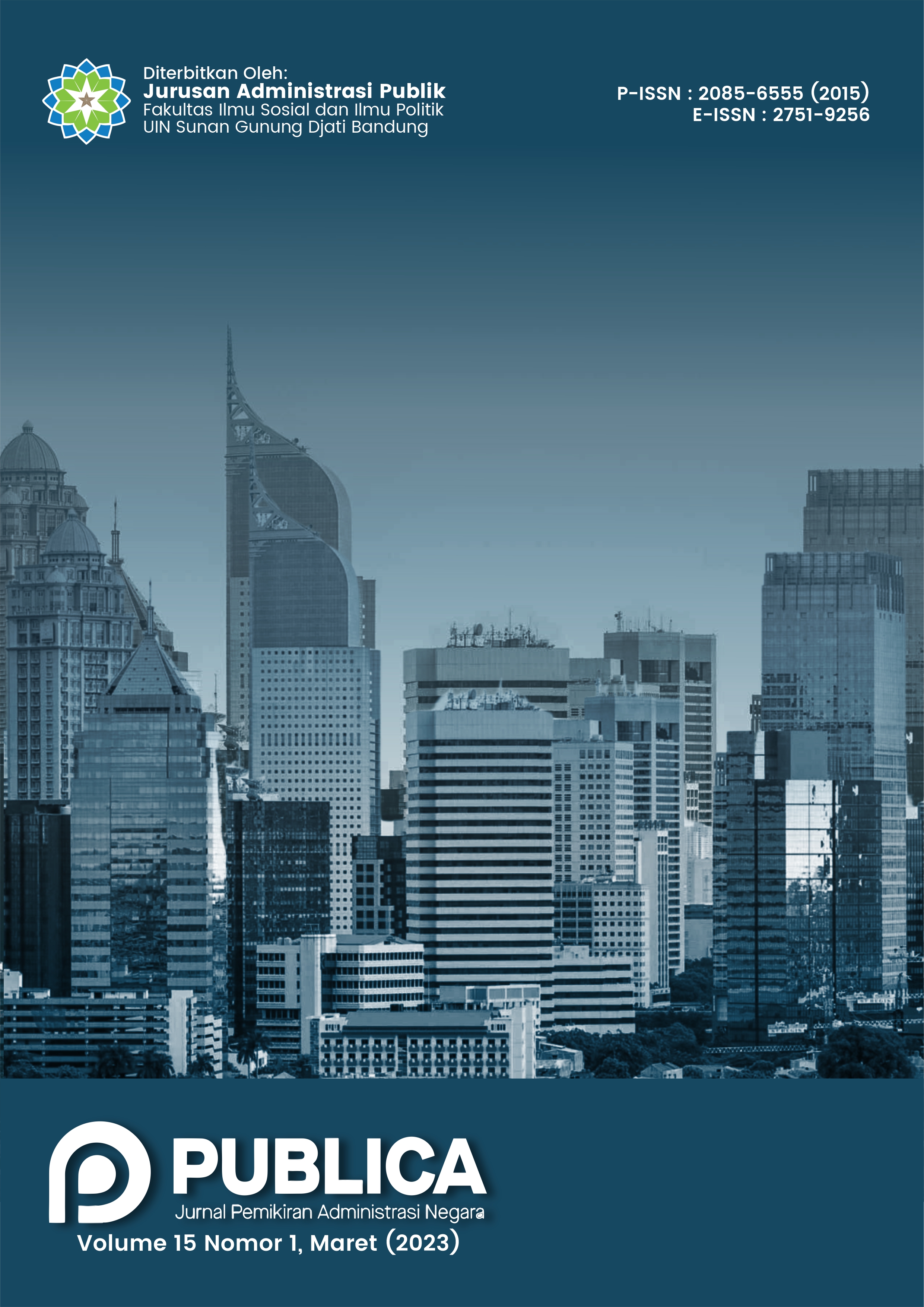The Urgency of Embodiment of Open Government As an Effort to Realize the Fulfillment of the Social, Political and Economic Rights of the Indonesian Society
DOI:
https://doi.org/10.15575/jpan.v15i1.23334Keywords:
Open Government, Human Rights, Indonesia SocietyAbstract
The Open Government Policy is a tool for achieving an increase in the quality of democracy in a country to improve meeting the needs of the people through an open policy governance. This policy generates various benefits for the business world and citizens, including for the government that implements the policy. Then this concept of openness sparked a movement that was followed globally, the emergence of government data portals that continue to spread, created by governments and multilateral independent teams working with governments working to develop open government data in a country. In Indonesia the open government movement has been responded to by the Indonesian government through Open Government Indonesia (OGI) which has been rolling since 2011 both in central government and regional government. The OGI movement was born from a similar movement called the Open Government Partnership. The Open Government Partnership (OGP) is a multilateral initiative that aims to secure government concrete commitments in increasing transparency, empowering people, fighting corruption, and leveraging new technology to strengthen government. OGP was officially founded on 20 September 2011 by eight countries, namely Brazil, Indonesia, Mexico, Norway, the Philippines, South Africa, England and the United States.
References
Ackerman, S. R. (2008). Corruption and Government. International Peacekeeping, 15(3), 328–343. https://doi.org/10.1080/13533310 802058802
Andhika, L. R. (2017). Jurnal Bina Praja Negative Effects of Open Government: Good Governance in Relation. Jurnal Bina Praja, 9(2), 219–229. https://doi.org/10.21787/jbp.09.20 17.219-229
Al-Jamal, M. &Abu-Shanab. E (2018). Open Government: The Line between Privacy and Transparency. International Journal of Public Administration in the Digital Age, 5(2), 64-75.
Cahya, D.A.D., Tarigan, J.S.R., Rivaldo, T. (2021). Urgensi Open Government Melalui Inisiatif Open Data dalam Mencegah Korupsi Anggaran Penanganan Covid-19 di Indonesia. Journal of Governance Innovation, 3(1), 33-57.
Gascó, M. (2015). Special Issue on Open Government: An Introduction. Social Science Computer Review, 33(5), 535– 539. https://doi.org/10.1177/08944393 14560676
Keraf, G. (2004). Komposisi. Ende: Nusa Indah.
Kornberger, M., Meyer, R. E., Brandtner, C., & Höllerer, M. A. (2017). When Bureaucracy Meets the Crowd: Studying “Open Government†in the Vienna City Administration. Organization Studies, 38(2), 179–200. https://doi.org/10.1177/01708406 16655496
Meijer, A. J., Curtin, D., & Hillebrandt, M. (2012). Open government: Connecting vision and voice. International Review of Administrative Sciences, 78(1), 10–29. https://doi.org/10.1177/00208523 11429533
Wirtz, B. W., & Birkmeyer, S. (2015). Open Government: Origin, Development, and Conceptual Perspectives. International Journal of Public Administration, 38(5), 381–396. https://doi.org/10.1080/01900692. 2014.942735
Zed, M. (2008). Metode Penelitian Kepustakaan. Jakarta: Yayasan Obor Indonesia.
Downloads
Published
Issue
Section
License
Authors who publish with this journal agree to the following terms:
-
Authors retain copyright and grant the journal the right of first publication, with the work simultaneously licensed under an Attribution-ShareAlike 4.0 International license that allows others to share the work with acknowledgment of the work's authorship and initial publication in this journal.
-
Authors may enter into separate, additional contractual arrangements for the non-exclusive distribution of the journal’s published version of the work (e.g., posting it to an institutional repository or publishing it in a book), with acknowledgment of its initial publication in this journal.
-
Authors are permitted and encouraged to post their work online (e.g., in institutional repositories or on their personal websites) prior to and during the submission process, as this can lead to productive exchanges and earlier, greater citation of the published work (see The Effect of Open Access).
